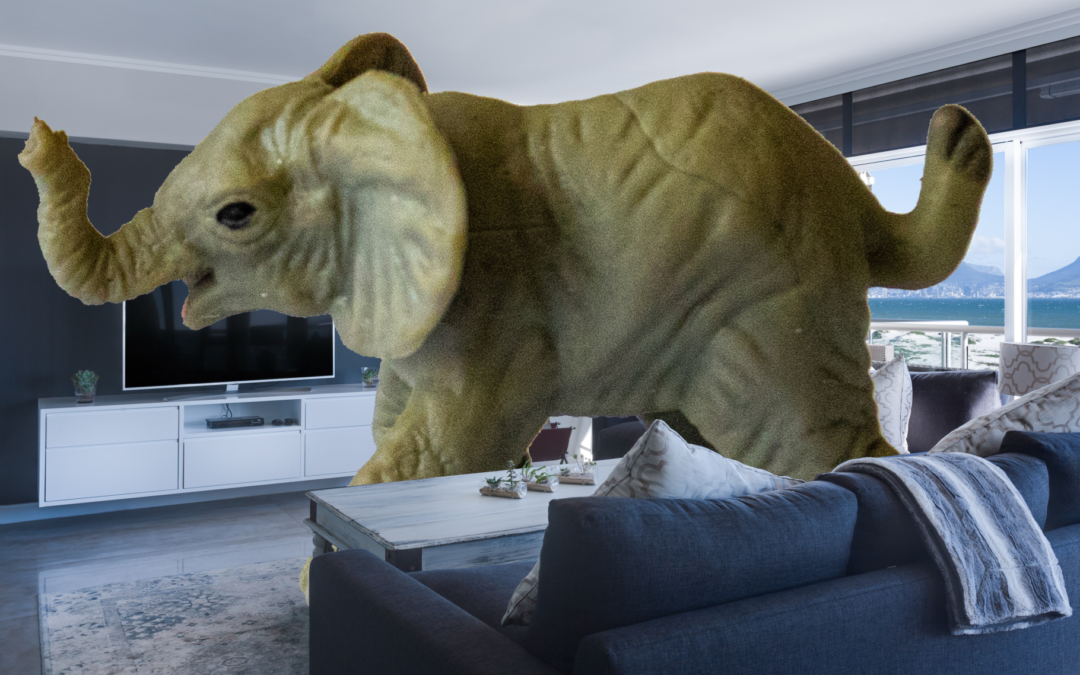Animals stuck in rooms are apparently a great source for idioms. Remember our post about there being „no room to swing a cat„? Today we will finally address the elephant in the room. Parts of this idiom are fairly straightforward. It is easy to imagine a standard living room, and it is easy to imagine an elephant. It is combining those two elements that causes some problems. For most rooms, adding an elephant would significantly impair their usage. Everyone would be aware of the elephant in the room. The crux of this idiom is that despite its immense size, the elephant is not addressed – until it finally is.
The elephant in the idiom is a metaphor for an uncomfortable issue, a topic or problem that everybody is aware of but intentionally does not address.
One possible example is this: in a post-covid world, a family sits together over Christmas for a big dinner. Everybody who tastes the food knows that it is bad – including the person who did the cooking – but in order to keep the family peace nobody dares address it. In this scenario, the bad food is the elephant in the room.
Unfortunately, it is not clear where exactly this idiom originated even though it is relatively young. The OED lists the first occurance of the phrase in 1935 in the book American philosophy today and tomorrow albeit with a different meaning, referring to logic and philosophy: „It is going beyond observation to assert there is not an elephant in the room, for I cannot observe what is not.“
Only in 1984 does it provide an example with the meaning given earlier, that means the first occurance of the phrase with the meaning we know today is only 36 years old, according to the OED. (The title of a book by M. H. Typpo & J. M. Hastings: „An elephant in the living room: a leader’s guide for helping children of alcoholics.“)
However, it does list a N.Y. Times headline from 1959 which uses the phrase in a way that is similar to what we might expect, even though it is listed within the logic and philosophy category: „Financing schools has become a problem about equal to having an elephant in the living room. It’s so big you just can’t ignore it.“ The headline itself even provides an explanation for the phrase – because it was unknown?
Wikipedia lists some other possible origins of the phrase, but it is not possible definitively say where the idiom came from and when it was first used.
If you enjoyed this post and are curious about other idioms, please let us know!


